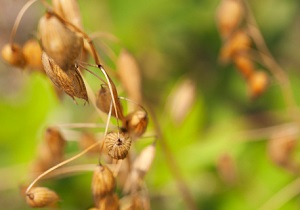
More evidence that low-calorie sweeteners are bad for your health
Studies show that artificial sweeteners can raise the risk of hypertension, metabolic syndrome, type 2 diabetes and heart disease, including stroke.

Natural Health News — Fields around organic farms have more types of wild plants, providing benefits for wildlife, according to a new study
Organic farms act as a refuge for wild plants, offsetting the loss of biodiversity on conventional farms. Indeed even a few organic fields on a farm may improve biodiversity by as much as 25%, the researchers found.
The new study, by researchers at the University of Swansea and institutes in France, looked at fields sowed with winter wheat in the region of Poitou-Charente or France.
» Organic farming, allows diverse plant life and wildlife around farms to thrive.
» Even in an area of conventional farming, having some organic farms can significantly boost biodiversity.
It found that organic farming led to higher weed diversity on surrounding conventionally farmed fields.
“Wild plants are important for birds, bees and other farmland species,” lead researchers Dr Luca Borger of the department of biosciences at Swansea University has commented.
“Organic farming has advantages in maintaining these, but even a mixture of organic and non-organic farming in an area
Feeding the world sustainably
Farmland provides essential habitat for bees, birds and other wildlife, as well as a diversity of plant life, but the industrial intensification of agriculture has led to a loss of biodiversity.
Critics of organic agriculture argue that this type of farming would not be able to feed the world in the future and that more industrialisation is needed to feed the world
However a recent analysis suggest that organic farming can be a very competitive alternative to industrial agriculture when it comes to food production.
Likewise a 30-year study from the Rodale Institute has found that organic yields are the same and in some cases better than those from industrial farming. In addition, organic agriculture is more profitable and builds more soil fertility over time.
This and the fact that we already produce enough calories to feed double the current world population put a hefty dent in the agricultural intensification argument.
Of course in addition to feeding the world, organic could also help provide more nutrient dense food. A recent study at Newcastle University, for example, found that organic foods had higher levels of some health promoting antioxidants. Organic produce also reduces our exposure to harmful pesticide residues in our food.
The study is published in the journal Proceedings of the Royal Society of London B- Biological Sciences.

Please subscribe me to your newsletter mailing list. I have read the
privacy statement